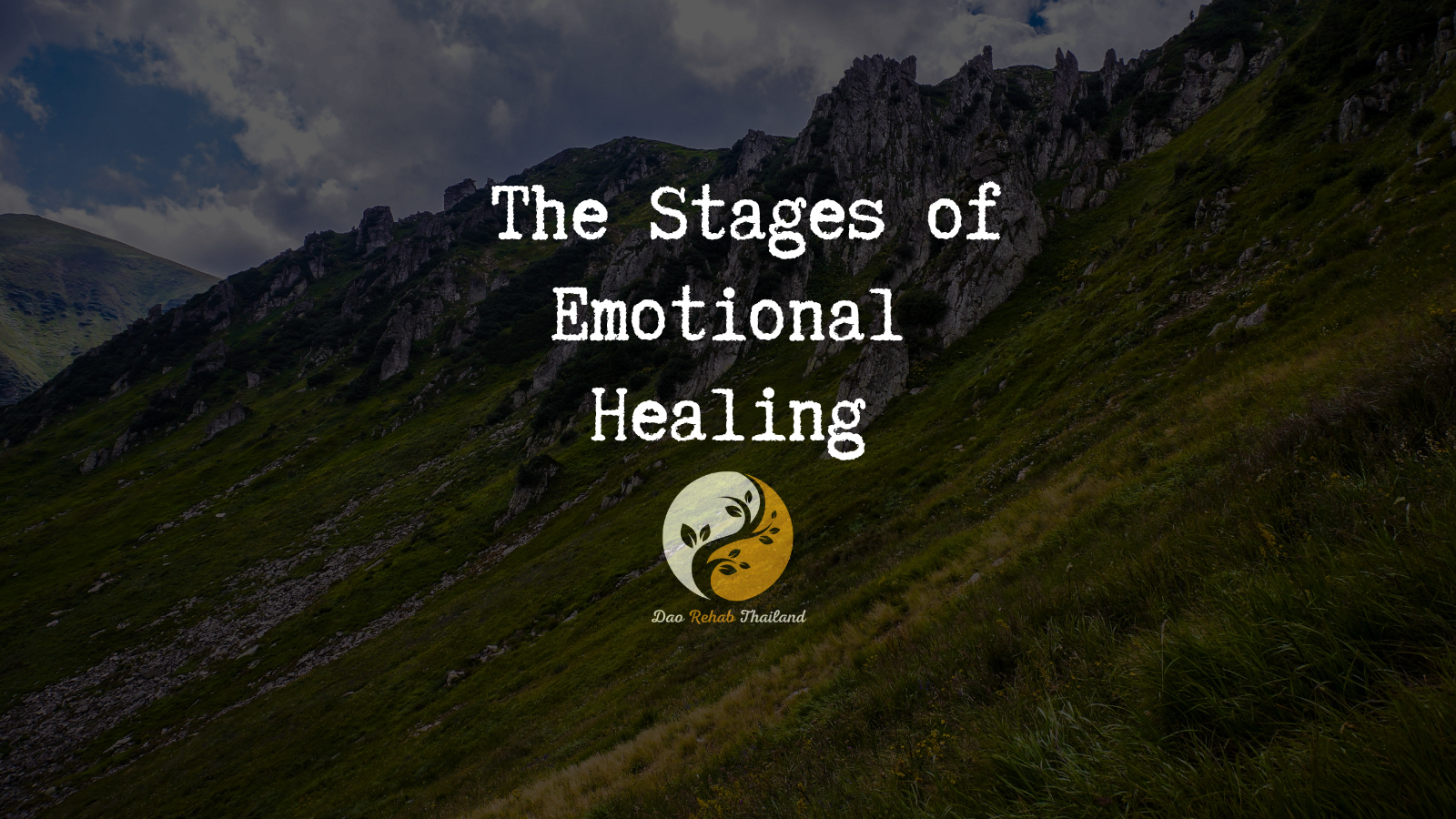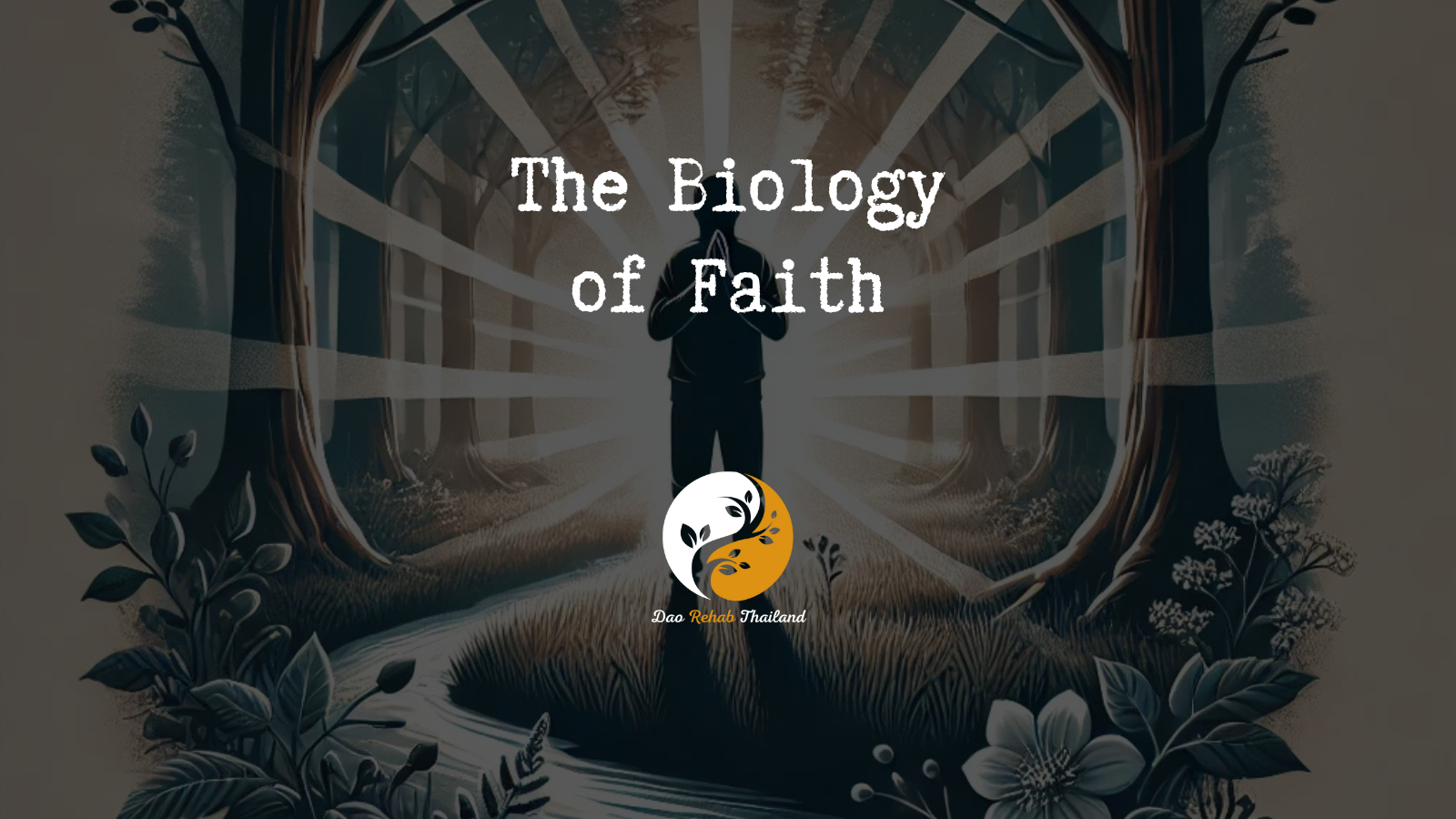
The Stages of Emotional Healing in thailand
The Stages of Emotional Healing
“Turning the impossible into possible”

"Detox from Drugs at a Luxury Holistic Center in Thailand and Israel"

The Stages of Emotional Healing Understanding the Journey in daotherapy
Emotional healing is a complex process that takes time and patience. It involves a journey that can vary in length and intensity depending on the individual and the type of emotional trauma they are healing from. Understanding the stages of emotional healing can help individuals navigate this journey and find the support they need to heal.
Research has shown that emotional trauma can indeed be stored in the body, leading to a variety of physical symptoms. For example, one study found that patients with chronic pain often have a history of trauma and that the pain may be related to the body’s response to the trauma. Another study found that individuals with post-traumatic stress disorder (PTSD) have greater physical health complaints, including pain and fatigue, compared to those without PTSD.
"Holistic Center for Trauma, Addiction, and Mental Imbalance Treatment in Thailand"
“Come to the beginning of your journey to freedom from addiction to alcohol, drugs, and pills, and rediscover your life within the serene embrace of DaoTherapy Rehab in Thailand—where holistic healing meets empowering recovery.”
DaoTherapy Holistic Rehab
Key Elements of Drugs Detox:
Medical Supervision: Drugs detox must be conducted under medical supervision, as the body may experience withdrawal symptoms. These can include nausea, anxiety, muscle aches, and insomnia. A medical team will monitor and manage these symptoms to ensure the patient’s safety and comfort.
Holistic Therapies:
Holistic Therapies: Many detox programs incorporate holistic therapies such as mindfulness, yoga, and meditation to help individuals cope with stress and anxiety during the detox process. These therapies support the mind-body connection and contribute to overall recovery.
Tapering Process
Tapering Process: Drugs detox often involves a gradual tapering of the drug to reduce withdrawal severity. Doctors will slowly decrease the dosage over time to allow the body to adjust to lower levels of the substance.
Psychological Support:
Psychological Support: Like any addiction recovery process, detox from Drugs includes psychological support. This can involve counseling, therapy, or support groups to address the mental and emotional aspects of addiction.
Post-Detox Treatment:
Post-Detox Treatment: After completing detox, continuing treatment is crucial to prevent relapse. This often includes participation in ongoing therapy, group support, and the development of new coping strategies to maintain sobriety.
The five stages of healing
The five stages of healing are denial, anger, bargaining, depression, and acceptance. These stages were first introduced by Elisabeth Kubler-Ross in her book “On Death and Dying” in 1969, and have since been applied to the process of emotional healing as well.
Denial: In this stage, individuals may refuse to accept that they have experienced emotional trauma. They may try to push their feelings away or downplay the severity of the situation.
Anger: Once denial fades, individuals may start to feel anger towards themselves or others for the trauma they have experienced. They may feel frustrated, helpless, and resentful.
Bargaining: In this stage, individuals may try to negotiate with themselves or a higher power to undo the trauma they have experienced. They may seek out ways to fix or reverse the situation.
Depression: As individuals realize that they cannot undo the trauma they have experienced, they may experience deep sadness, grief, and a sense of hopelessness.
Acceptance: In the final stage, individuals come to accept that the trauma has happened and begin to focus on healing and moving forward.

contact us
Contact us with your questions
We would love to speak with you! Feel free to reach out with any questions.

get in touch
Schedule a free consultation
Schedule a free consultation with our team and let’s make things happen!
The Process of Emotional Healing: 7 Steps
The process of emotional healing can be broken down into seven steps. These steps were first introduced by John Bradshaw, a prominent therapist and author, in his book “Healing the Shame that Binds You.”
Awareness: The first step in emotional healing is becoming aware of the emotional pain and trauma that needs healing. This involves recognizing the feelings and behaviors that are causing distress and identifying the source of the trauma.
Acknowledgment: The second step is acknowledging the pain and trauma, and accepting that it is a part of one’s life. This involves admitting to oneself that there is a problem and taking responsibility for one’s own healing.
Acceptance: The third step is accepting that healing is possible and committing to the journey. This involves letting go of any doubts or fears about the healing process and trusting that it is possible to move forward.
Feel the Pain: The fourth step is allowing oneself to feel the pain and trauma without judgment or avoidance. This involves experiencing the emotions and sensations that come with the trauma, even if they are uncomfortable or painful.
Grieving: The fifth step is acknowledging the losses that have come with the trauma and allowing oneself to grieve them. This involves recognizing the things that have been lost as a result of the trauma, such as trust, safety, or a sense of self, and allowing oneself to mourn these losses.
Forgiveness: The sixth step is forgiving oneself and others for any harm caused by the trauma. This involves letting go of anger, blame, and resentment, and finding compassion and understanding for oneself and others.
Moving Forward: The final step is making a commitment to move forward with a new sense of purpose and direction. This involves creating a vision for the future and taking steps to make that vision a reality, such as setting goals, seeking support, and engaging in activities that promote healing and growth.
Signs of Emotional Healing
Increased Self-Awareness: As individuals move through the stages of emotional healing, they may become more self-aware, gaining a better understanding of their emotions, thought patterns, and behavior. This increased self-awareness can help individuals identify and change negative patterns, and develop greater self-acceptance and self-compassion.
Improved Relationships: Emotional healing can have a positive impact on relationships, as individuals become better able to communicate their needs and emotions, and develop greater empathy and understanding for others. As individuals heal from past emotional wounds, they may find that their relationships become more fulfilling and positive.
Greater Resilience: Emotional healing can help individuals develop greater resilience, or the ability to bounce back from challenges and adversity. As individuals work through past emotional trauma, they may develop greater coping skills and a stronger sense of inner strength and resilience.
Improved Physical Health: Emotional healing can also have a positive impact on physical health, as it can reduce stress and improve overall well-being. Studies have shown that chronic stress and emotional trauma can lead to a range of physical health problems, including high blood pressure, heart disease, and autoimmune disorders. By reducing stress and promoting relaxation, emotional healing can help prevent these negative health outcomes.
Releasing Emotional Blockages
Releasing emotional blockages is an important part of the healing process, as it can help individuals move past negative emotions and experiences that may be holding them back. Here are some techniques that can help release emotional blockages:
Mindfulness: Practicing mindfulness can help individuals become more aware of their emotions and thought patterns, and develop greater self-acceptance and self-compassion. Mindfulness techniques, such as meditation, deep breathing, and body scans, can help individuals release emotional blockages and promote relaxation and stress reduction.
Journaling: Writing about one’s emotions and experiences can be a powerful way to release emotional blockages and gain clarity and understanding. Journaling can help individuals identify patterns and triggers, and develop a greater sense of self-awareness and self-reflection.
Therapy: Working with a therapist can help individuals identify and release emotional blockages through techniques such as cognitive-behavioral therapy, somatic therapy, and EMDR therapy. These therapies can help individuals process past trauma, identify negative thought patterns and behaviors, and develop healthier coping skills and strategies for managing emotions.
Psychological Support:
Psychological Support: Like any addiction recovery process, detox from Subutex includes psychological support. This can involve counseling, therapy, or support groups to address the mental and emotional aspects of addiction.
Osho's self-talk mantras:
1. I choose to see reality as it is, without interpretation and judgment of the mind.
2. I am aware that I am free from fear, and that the mind can no longer control me.
3. I reclaim my awareness every moment and choose to live in the light.
Thought provoking questions:
1. Have you ever felt that you live in constant fear? What was the main reason for this?
2. How did you feel when you realized that the fear comes from the mind and is not real? Did it change your perspective?
3. Have you tried to apply these ideas in your life? What were the main challenges?
4. From the awareness experience for you? How is it different from the normal experience of life?
5. How do you intend to take responsibility for realizing awareness in your life from now on?








